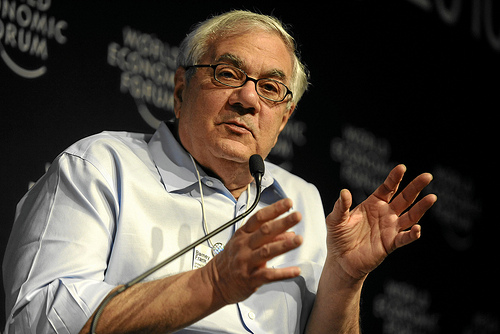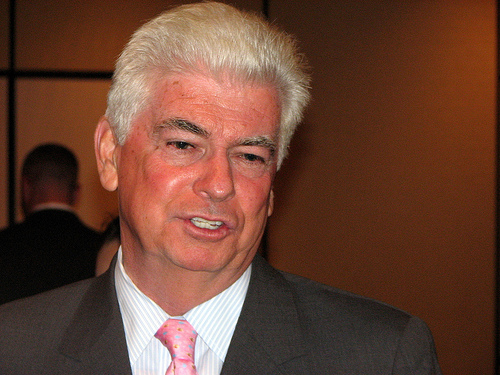After saying last fall that the Federal Reserve had been “an abysmal failure” in its role protecting consumers, Sen. Chris Dodd (D-Conn.), in the latest twist in the Senate’s financial-reform talks, now wants to put the well-being of consumers in the hands of the Federal Reserve, proposing to house a consumer-protection agency within the opaque Fed. The head of this hypothetical consumer agency would be appointed by the White House, according to the Washington Post, and while the agency would have rule-making powers, it would be up to existing regulators to enforce those consumer-oriented rules. It’s unclear who’d win out in a power struggle between this Fed-housed consumer agency and other banking regulators, and whether the hypothetical consumer agency’s jurisdiction would include certain non-banking institutions. But if there’s one thing to take away from this latest leak from Senate’s financial-reform negotiations, led by Dodd and Sen. Bob Corker (R-Tenn.), it’s this: Dodd’s not taking the high road, and appears willing to appease Republicans to almost any length if it helps him gets a bill passed.
This is the same Chris Dodd, you’ll remember, who lambasted the Fed last year for its regulatory failures in the run-up to the crisis. In November, Dodd wanted to strip the Fed of practically all of its oversight power, creating a superregulator for financial institutions and leaving the Fed only to deal with monetary policy. And before that Dodd had generally opposed expanding the Fed’s power at all, instead supporting the idea of an independent consumer protection agency. Meanwhile, Dodd’s main Republican counterpart on the Senate banking committee, Sen. Richard Shelby (R-Ala.), has been an even more boisterous opponent of the Fed on numerous occasions: He’s cited the Fed’s “history of failure in supervision and regulation” and opposed the renomination of Fed chairman Ben Bernanke, who “fiddled while our markets burned,” as Shelby put it.
Undoubtedly, the source of the Fed consumer-protection plan is Corker, the main Republican negotiator on financial reform since Shelby abandoned the talks in mid-February. But is the support of a single Republican senator enough to garner bipartisan backing for handing consumer protection off to the Fed? Or as one Senate aide familiar with the negotiations told Mother Jones recently, “Those who are arguing for real reform are arguing, ‘Why even compromise if they’re going to oppose it anyway? Why are you negotiating against yourself?'”
















